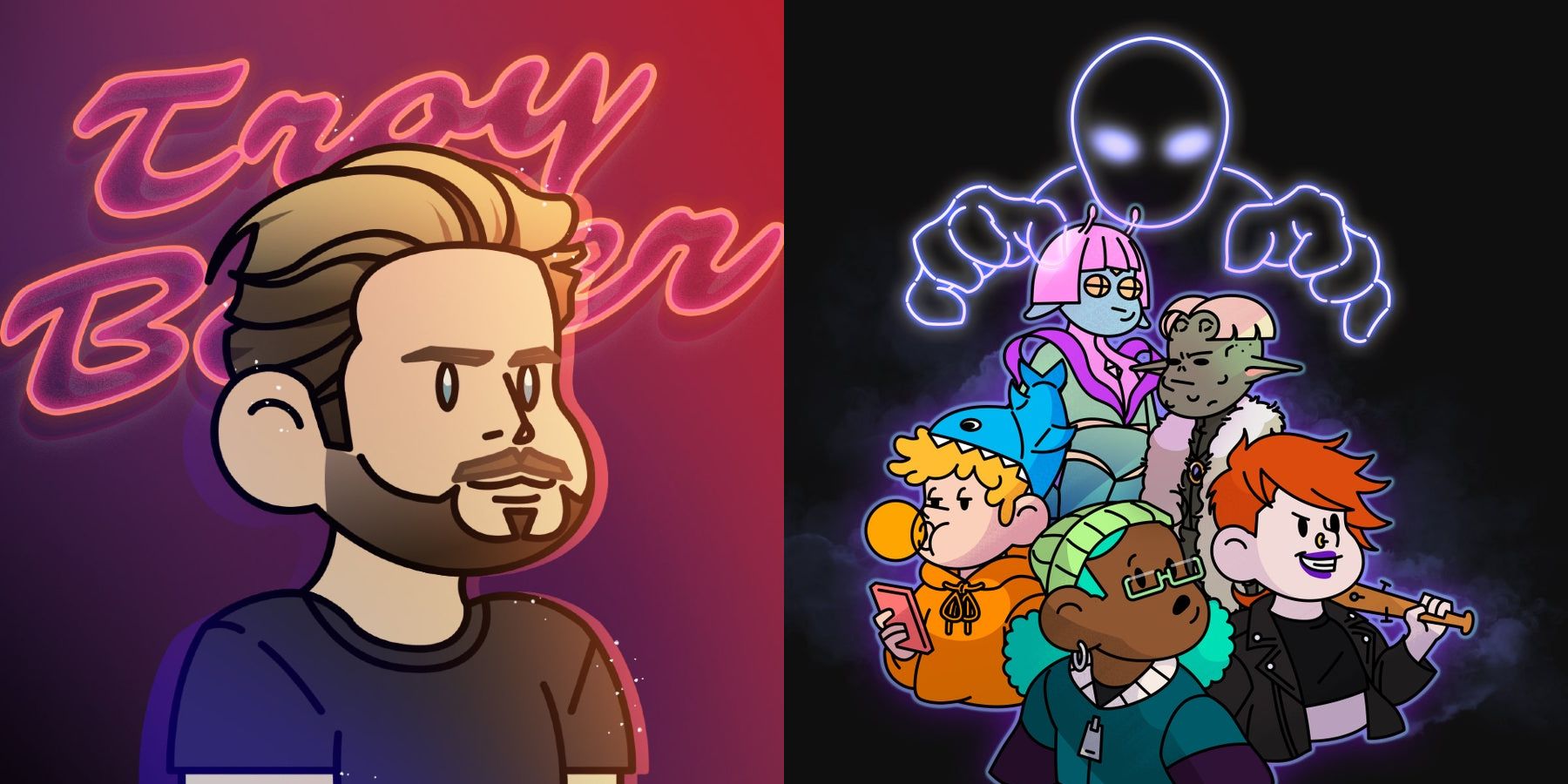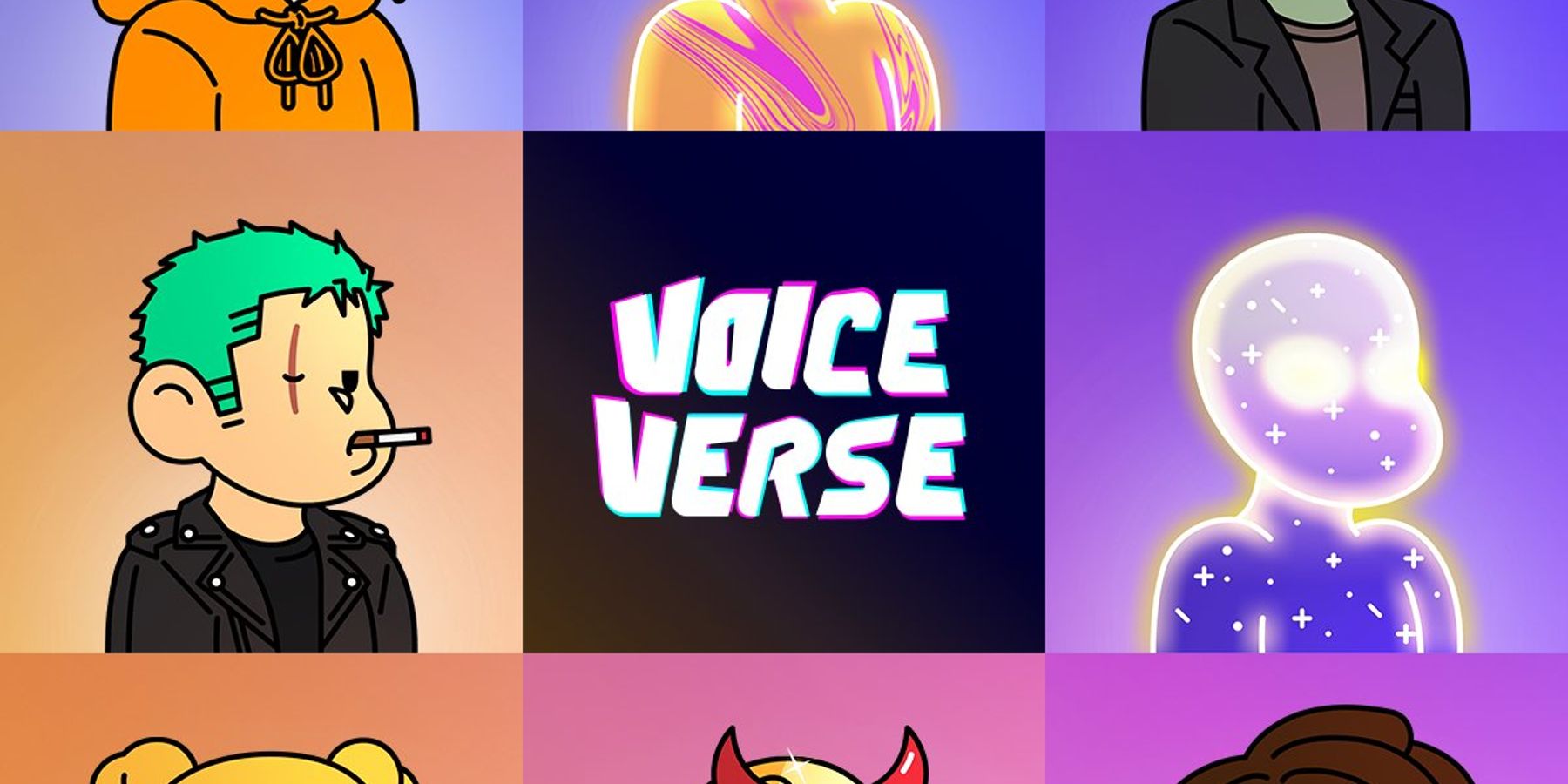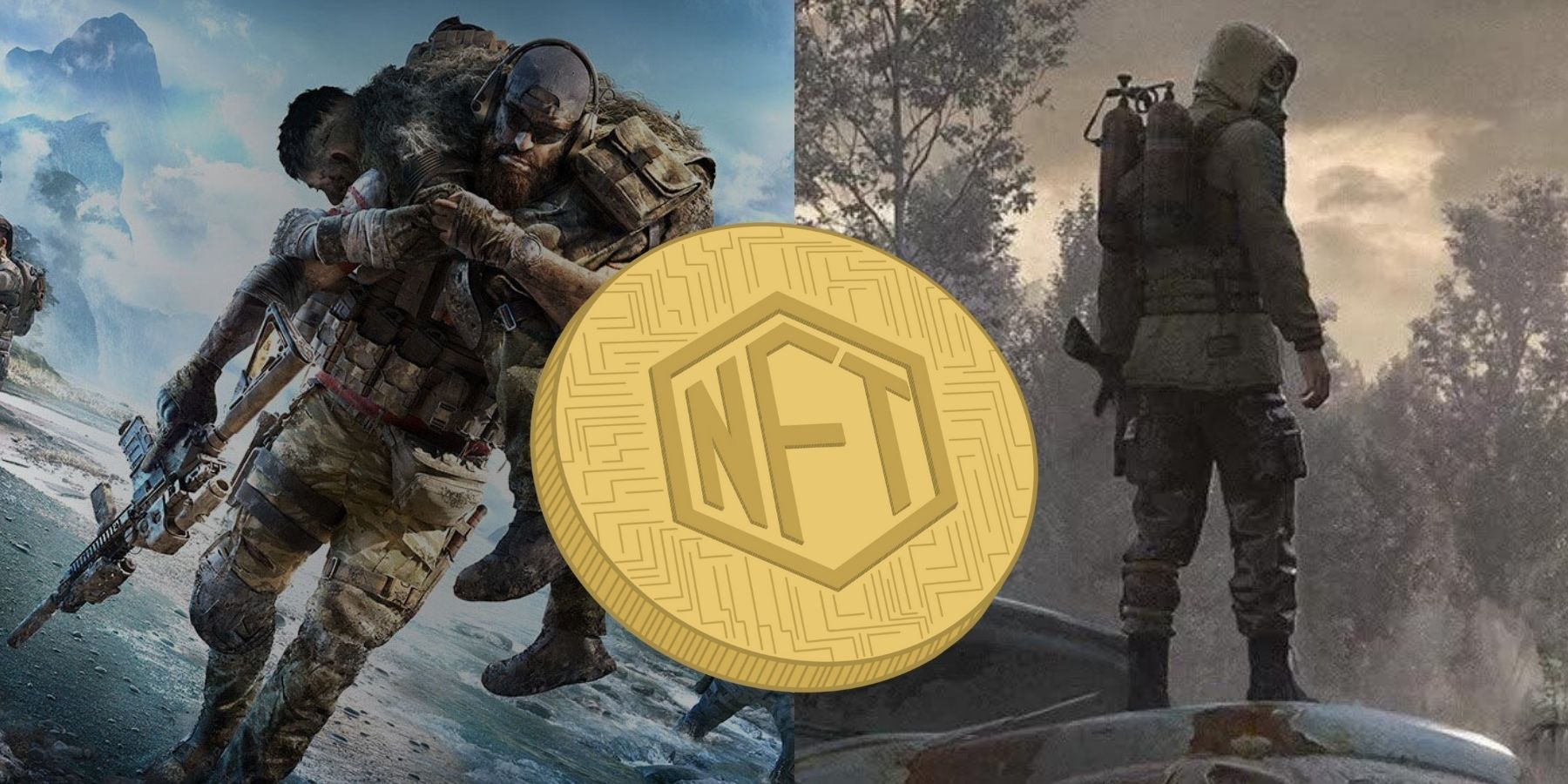NFTs are undoubtedly one of the most controversial topics in gaming right now, and the most recent name to get wrapped up in this controversy is Troy Baker. One of the most recognized voice actors in gaming, the prolific Baker has voiced pivotal characters in many, huge video game franchises like The Last of Us, BioShock, Unchartered, Far Cry, and more. As such, Baker is pretty well liked across gaming culture and is usually a solid casting choice for big games. However, Baker getting involved in NFTs has lead to a major backlash, particularly because of the type of NFTs Baker is promoting.
There's been plenty of coverage of gaming announcements concerning NFTs being met with disappointment or ridicule from fans. Square Enix, Ubisoft, and Konami have all announced NFT-related projects with little to no support for fans. While NFTs have their supporters, the continual push from the gaming industry to engage with them is leaving many feeling very frustrated. The NFTs Troy Baker is partnering with are described as "the first voice-based NFT," and this has drawn even more criticism than the usual NFT announcements.
Troy Baker's Voiceverse NFT
The company Troy Baker has partnered with, Voiceverse, sell NFTs stored on the Ethereum blockchain. This means that buying an NFT from Voiceverse is buying a unique blockchain address, and this comes with access to an AI-generated voice program that will replicate a certain voice. Voiceverse claims that ownership of this voice NFT will allow users to create content and own the IP of said creation, which is a legally dubious statement. The voices are intended to be used across the metaverse, and the idea is they give easier access to professional grade voice acting.
While Baker's announcement that he was partnering with Voiceverse was criticized for the usual environmental impact concern (Voiceverse claims it is looking into lessening this but does not mention how), fans also took particular umbrage at Baker promoting this kind of NFT. Obviously, an AI-generated voice program should be a concern for voice actors as, in theory, the AI can replace their jobs. Furthermore, the idea that this kind of NFT makes professional voice acting more accessible to the public is a farce considering the amount of money NFTs can sell for.
Baker has not specified if an approximation of his own voice will be sold as an NFT through Voiceverse yet, and the response to his announcement reveals the disappointment of many artists, and especially voice actors, who have been negatively impacted by NFTs. Through these NFTs, voice actors would receive royalties each time their voice NFT is sold, rather than when their voice is used.
The Continual Growth of Gaming NFTs
In addition to the environmental impact of NFTs, it has been pretty clear that a majority of gamers simply don't want NFTs to become a large part of gaming. Much like Troy Baker partnership with NFTs potentially harming voice actors, it seems highly counterintuitive for the gaming industry to continually push NFTs to an audience that doesn't want them. Both Baker and Square Enix president Yosuke Matsuda were accused of being out of touch after they released statements on NFTs, with Baker writing "You can hate. Or you can create." This presumably was to preempt some backlash, but came off in poor taste considering people's genuine concerns about NFTs. Baker has since apologized for this part of the announcement.
The statements from game companies and Troy Baker do indicate why they have not yet been deterred from continuing to push for gaming NFTs, aside from the profit they can generate. Since gaming has been at the forefront of digital entertainment since its inception, any new technological development creating buzz will be considered for video games. Despite the lack of support from fans, game companies see NFTs as an exciting prospect to get more people to play games with the promise they'll earn money as they play, hence EA calling NFTs "the future" of gaming. However, while the negative responses may be written off as people getting used to a new technology, the gaming industry can only promote them so much before completely losing fans. As such, a majority of fans see Troy Baker's NFT deal as just one more alienating move from the industry.



